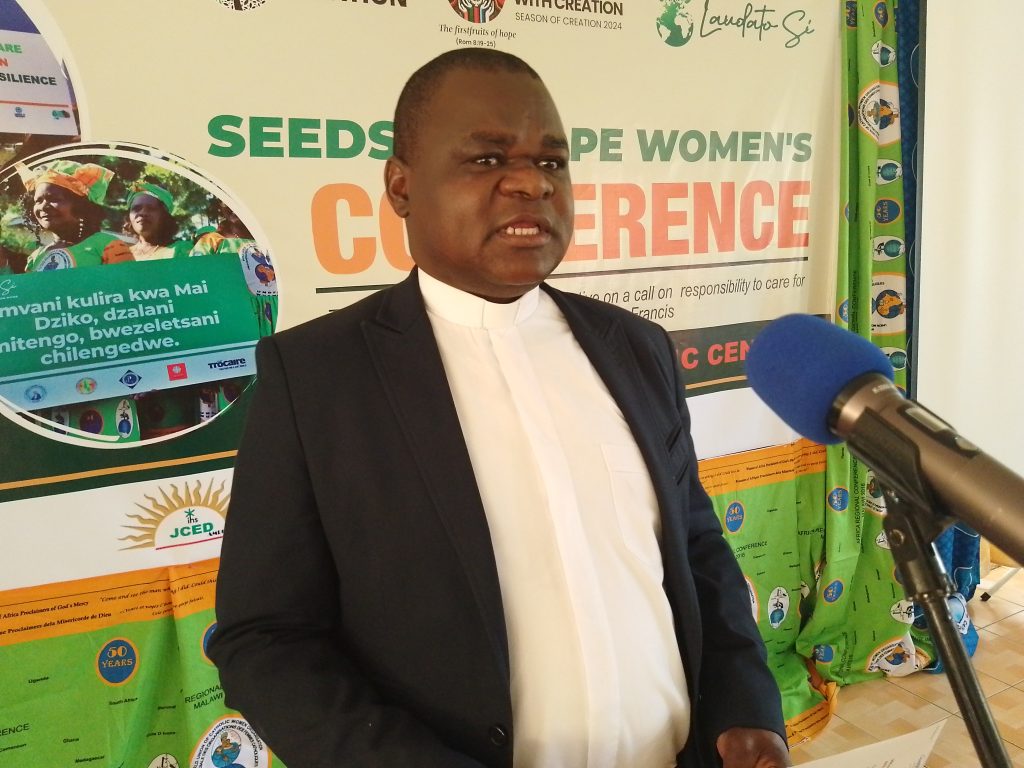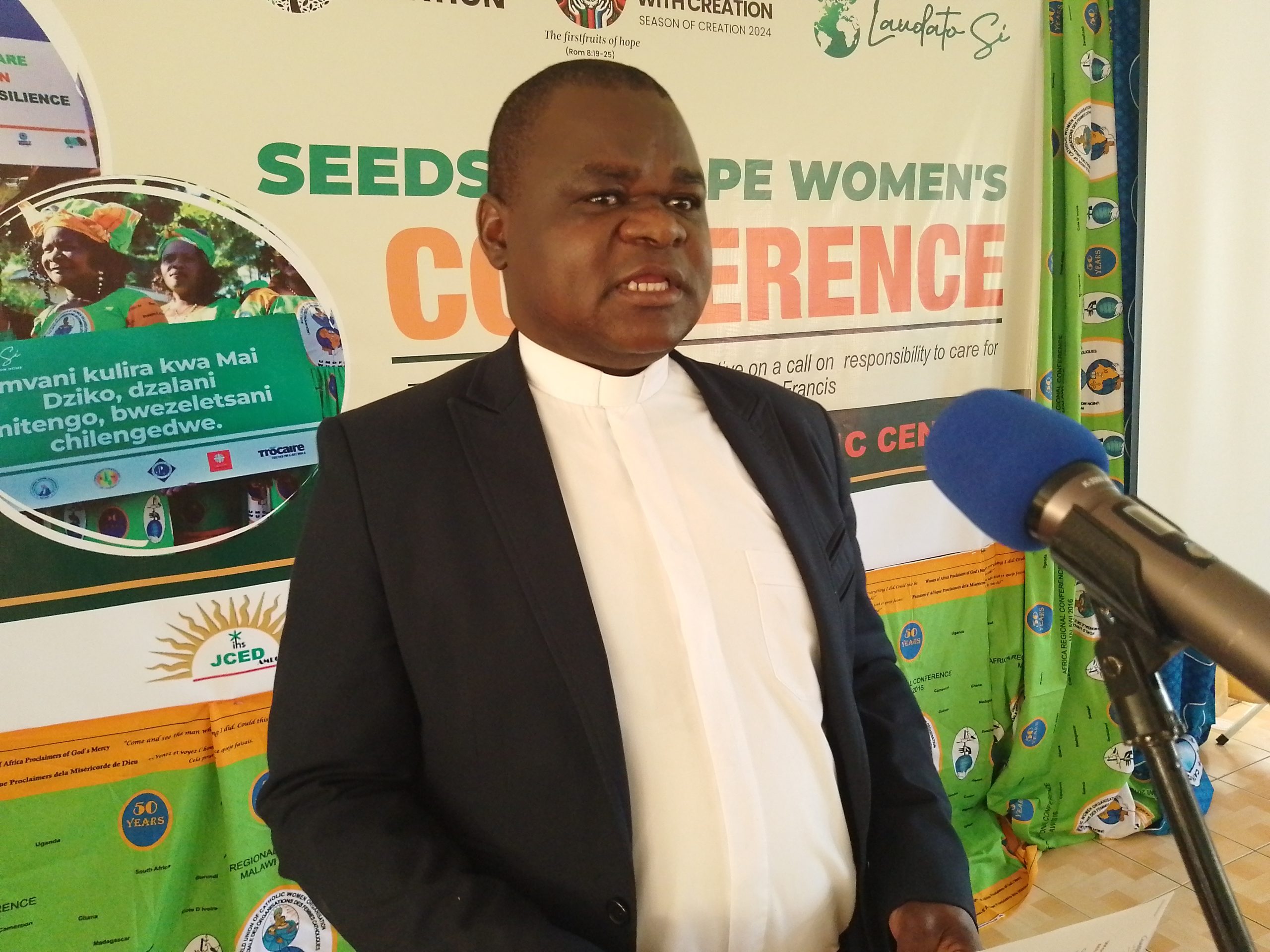Members of the Catholic Women Association (CWA) from all the seven dioceses of the Catholic Church in Malawi converged in Lilongwe to discuss measures they can take to mitigate the effects of climate change.
The conference, which the Jesuit Centre for Ecology and Development (JCED) facilitated with financial support from Trocaire, took place at the Msamba Catholic Centre from Friday to Sunday.

In his opening remarks, the Secretary General of the Episcopal Conference of Malawi (ECM), Father Valeriano Mtseka, described the conference as timely since Malawi is experiencing an increase in natural calamities.
Mtseka emphasized the need for the Catholics, including members of the association, to assume greater responsibility in restoring the degraded environment.
“And it’s pleasing to know that CWA has taken up this role. We expect that through their action, they will be able to influence other people so that they also come to understand that we each have a responsibility to restore the environment, and to make sure that we curb the climatic conditions that bring a lot of chaos on our side,” he said.
Mtseka disclosed that the Catholic Church in Malawi will work closely with the association in mitigating the impacts of climate change.

He said the church will, among others, help the association in raising resources for the implementation of the intervention.
“In terms of raising some funds, we could, in this case, ask each parish to have one Sunday for collection, to make sure that we support these efforts. And I’m sure that little by little, we will be able to come to that. And now that we are in the system of creation this year, we can do something little next year. We’ll continue from there, and we make sure that each one is responsible, to make sure that nature is brought back to each situation,” he said.
CWA Board Member Lucy Vokhiwa expressed the association’s disappointment with the decision by the High Court to grant an order to 11 manufacturers stopping the Malawi Environment Protection Authority (MEPA) from enforcing a ban on single-use thin plastics.
Vokhiwa disclosed that the association is intending to join the case as friends of the court in pushing for the enforcement of the ban on thin plastics in Malawi, warning that any delays to stop use of thin plastics will negatively impact the country.
“We are all aware that thin plastics, or plastics in general, are one of the main factors that are contributing to the degradation of the air. So as CWA, and all the Catholic women, are some of the biggest users of plastics. Thus, we have to join a campaign against the use of plastics and get alternatives,” she said.
Vokhiwa challenged CWA members to heed the call by Pope Francis in his letter, Laudato Si, which emphasizes the need for the church to take a greater role in protecting and caring for the environment.
She feared that continued usage of the thin plastics and improper waste management would make the earth inhabitable.
“So we should take this as a challenge to see what else can be used instead of in these things. But if we continue to use them, it means this fight cannot be won. So, we as Catholic women, we are ready to join the thin plastic case as friends of the court. Thin plastics must be banned in this country,” stressed Vokhiwa.
JCED Executive Director Reuben Chifundo Nazombe concurred with CWA, stressing that Malawi needs to act fast to restore the environment.
Nazombe said it is against this background that they initiated the project to ensure that every Malawian has access to the knowledge on environmental restoration.
“We have started with women because we do realize that women play a very crucial role in care for the environment. Majority of women, they’re the ones who are involved in activities to do with the environment. And as an agro-based economy, it’s mostly women who are involved in farming, but also women are affected much by the effects of climate change and environmental degradation,” he explained.
Nazombe said his organization expects the participants to lead a campaign in their respective communities about the need to restore the environment by planting more trees and caring for them.
